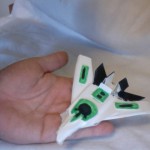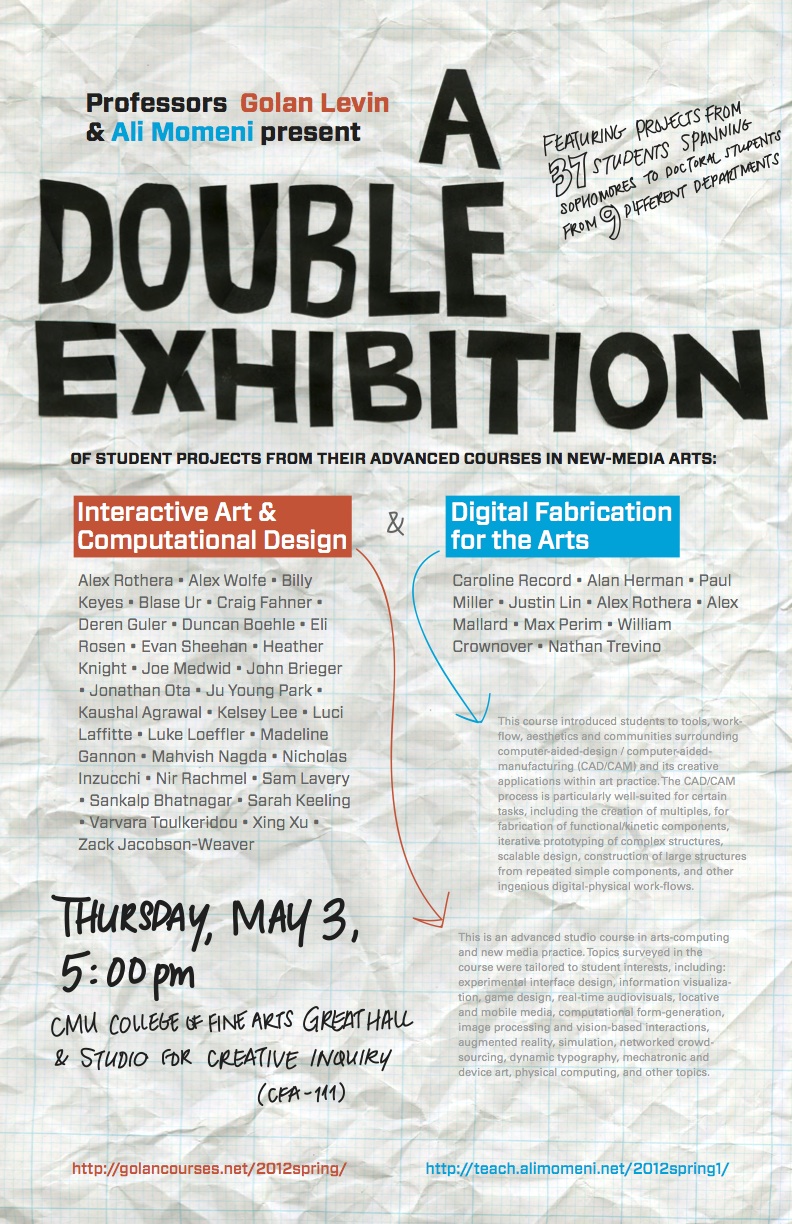
The public opening is announced for 5pm on Thursday May 3. Design junior Eunice Chung has very kindly made the above poster; please feel free to distribute the PDF by email.
Tomorrow’s class time is dedicated to preparations/installation of your works in the CFA Great Hall/Studio. I will be available in my studio in Doherty D313 for any consultation/questions.
The map below indicates the locations for each final project:
- All works must be installed by 12pm PM on Thursday May 3
- If you see a “?” next to your name, please contact me with your plans.
- Note the red circles indicating power outlet locations that I have identified; there may be others.
- If you need additional materials (extension chords, podia, projectors, etc.) and have not yet secured one, please contact me right away.
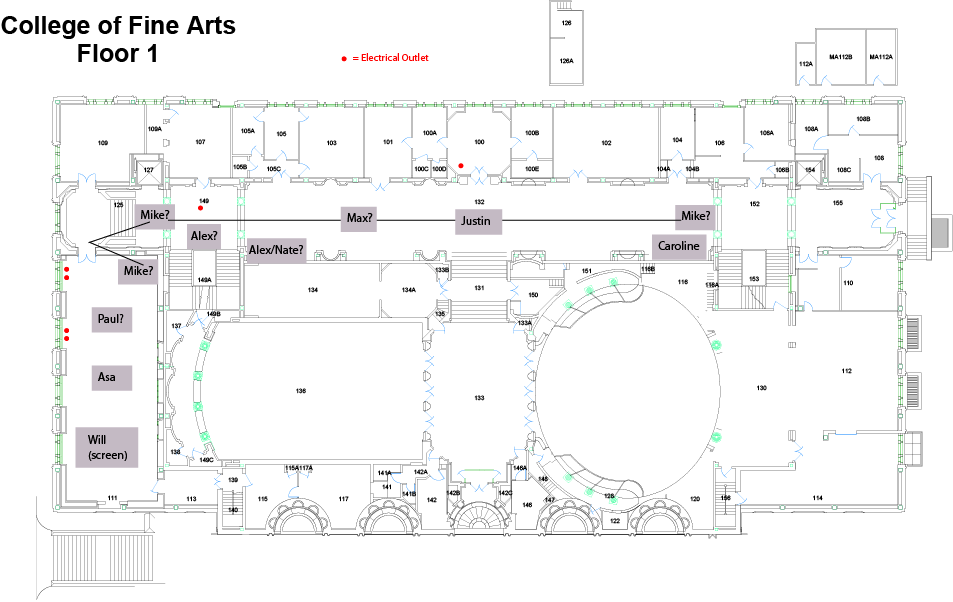
Please don’t forget to visit the FCE site to complete a Course Evaluation for this class.
The system will be open until May 15, 2012.
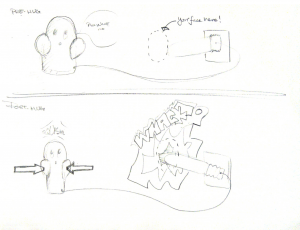
A fairly self expanatory image. A hugging station and a slapping station are isolated from each other except by a lengthy air line. The hugging station is comprised of a soft, huggable creature. The slapping station will have a place for a participant to place their face in anticipation of a slap. Upon the hugging station being utilized for its hugging purpose, the slappee is slapped thanks to an increase in air pressure from the squeeze of the hug.
I ended up not completing this project for my final project since I felt that this had no conceptual backing and was really just something I wanted to try and do.
I made a small file in Rhino and purely cut it out of Stonehenge Printmaking paper. I wanted to not make fold lines and strong cuts because I felt that this mini assignment really influenced me to create something out of hand and leaving some sense of ‘human error’ in the design. I also felt the small cute form of an F-14 Tomcat, the most decorated fighter in history, was interesting because of it’s smooth translation from war machine to toy.
I tried capturing my roommate’s gorgeous head, but that didn’t work. I tried capturing my 3d print sculpture (which I could then re-print, with the obviously results of insanity and profit), but that didn’t work. I tried capturing my kitchen table, and that worked pretty well, if “Dr. Seuss battles the termite queen” is an aesthetic you’re into. Here’s one of the pictures I took:
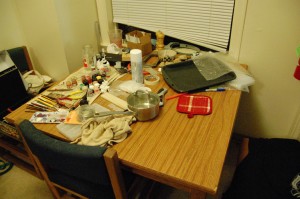
And here is the resulting mesh in Blender:
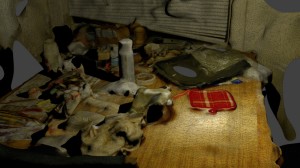
Why am I awake.

3D structured light scanning is a way of taking images of 3D objects and creating meshes or 3D point clouds from the images. You can do it at home by projecting alternating patterns of striped light across a person or surface. You take 3 images of the object or person, each image has a different pattern projected onto it. Then you run the image through a program that assembles figures out the distances between the points of the object and creating a 3D point cloud. However, this is very difficult to get right, and you need rather precise lighting in order to produce the correct effect. Whenever I have tried it, it usually just ends up flat.
When done correctly, it should look like this:

Or this:









